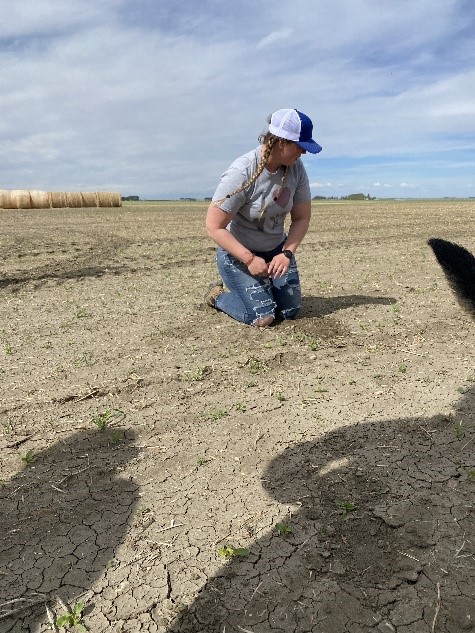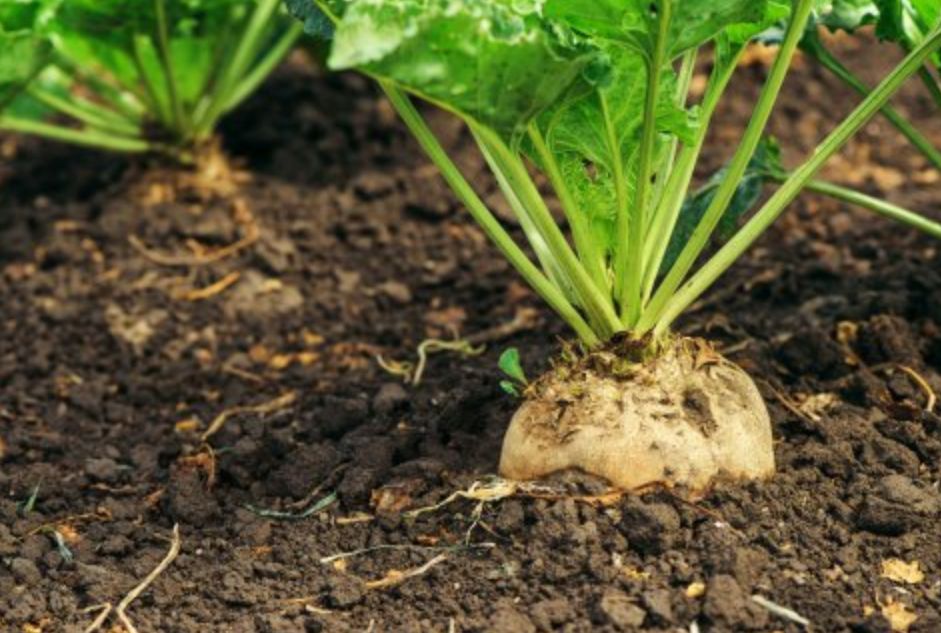Featured Grower - Rebecca Tokariuk
Meet Rebecca Tokariuk!
Local to Southern Alberta, Rebecca Tokariuk is an Agronomist who works for Lantic/Rogers, helping to oversee the production of the sugar beet crops. Raised on her family's farm, she tells of how she got into agriculture herself and the role she plays in the industry.
 How did you become involved in the sugar beet industry?
How did you become involved in the sugar beet industry?
Our family farm has been growing sugar beets since 1949 and I grew up helping my dad - I was mostly pulling kochia weeds the size of my 8 year old self, out of the field! After my first year of University, I had taken a job working for Bayer Crop Science over the summer and started doing some canola agronomy. I decided I liked it, so I switched to the University of Alberta for a Bachelor of Science in Agriculture with a major in Crop Science. I graduated in 2015, at the same time this job became available. I got the job and I just completed my 8th harvest year.
How would you describe your job?
Throughout the course of the year, we do a wide variety of things. Starting at the beginning, we are responsible for importing seed from the States, as Canada does not grow sugar beets for seed production. We'll do all the CFIA paperwork to import it and once the seed is here, we deliver it and essentially 'sell' it to the growers. Once the seed is in the ground, we're out in the fields checking everything from seed depth, bugs, disease, weeds, spray timing, etc. Often at times, we're working really closely with the growers, making sure that they're using the best farming practises. That they're spraying on time, using the correct chemical rates, or if chemical is even necessary and so on.
Once we get through spraying season, we're looking at irrigating and making sure that the growers are keeping enough water on their beets. Then it pretty much comes down to harvest time where we run the piling stations, hire crew and work with the growers to get their beets to the piling stations.
Where do you see the future of sugar beets going?
I think we've made a lot of really good advancements, especially with the Roundup ready technology that came out in 2009, that's been huge for our industry. Going forward, I think we're going to see the industry lean into breeding towards disease resistance and creating different herbicide modes of action. Basically, this would allow us to spray different chemicals onto the beets, in order to kill weeds and to combat resistance in plants like kochia, which is something we're seeing now.
To me, I think a lot of work is going to come from the breeding side of things, making sugar beets more adaptable to certain chemicals and conditions. This will allow us to spray less and put fewer inputs on the crop. We are also seeing a large trend of people leaning towards the reduction of chemicals. I think this is largely caused by a lack of understanding of the chemicals and becoming wary as a result. I believe that if fewer inputs go on the beets, the easier it will be to understand and the better the public perception.
Other than that, I think we'll continue moving towards no-till and creating better tillage practices in order to preserve the soil around here. I think that's going to be massive for Southern Alberta.
How has GMO technology changed the sugar beet industry?
I really liked what my dad said at this one educational tour, "that we used to be spraying a 'cocktail' of chemicals that really weren't great and weren't really efficient". Like I had mentioned before, I spent my childhood pulling big, resistant (not affected by chemicals) kochia plants out of our beet fields. There was a ton of hand labour that was associated with beets before they were Roundup ready.
But now we can do two applications of Roundup instead of multiple applications of the 'cocktail mixture'. Roundup is also a much safer chemical. If you look at the LD50 (lethal dosage - the amount of a substance that leads to the death of 50% of the test population) you'll see that glyphosate (Roundup) is actually less toxic than Advil, caffeine and hydrogen peroxide.
So not only is it a really safe chemical, but we're driving throught the field less, saving diesel fuel and seeing other environmental benefits that branch off from there. Plus, Roundup keeps our beets vigorous. The chemicals we had to spray before actually set our beets back, damaging them and Roundup doesn't do that. The beets are able to come out of the ground, get established and stay vigorous right off the get-go. Just having the ability to grow uninhibited by weeds and chemicals is an incredible advancement.
What's the most interesting part of your job?
The psychology of my growers during harvest...no, I'm just kidding. I think the fact that it's such a unique industry. As a whole, we're only 28,000 + acres in all of Canada, so it's a rather rare crop. The GMO and Roundup aspect makes it a really fun plant to work with. Even the harvest part of it, whereas it's very stressful, it's also very interesting.
Sugar beets are also unique in the sense that you have to work with your neighbors while focusing on getting your own crop out. Making sure those beets are coming out of the ground in a good condition can be very tricky, so there's a whole different component to harvest that you won't necessarily see with grains or pulses.
My co-workers are pretty fantastic, we have an awesome crew over here!





 How did you become involved in the sugar beet industry?
How did you become involved in the sugar beet industry?


